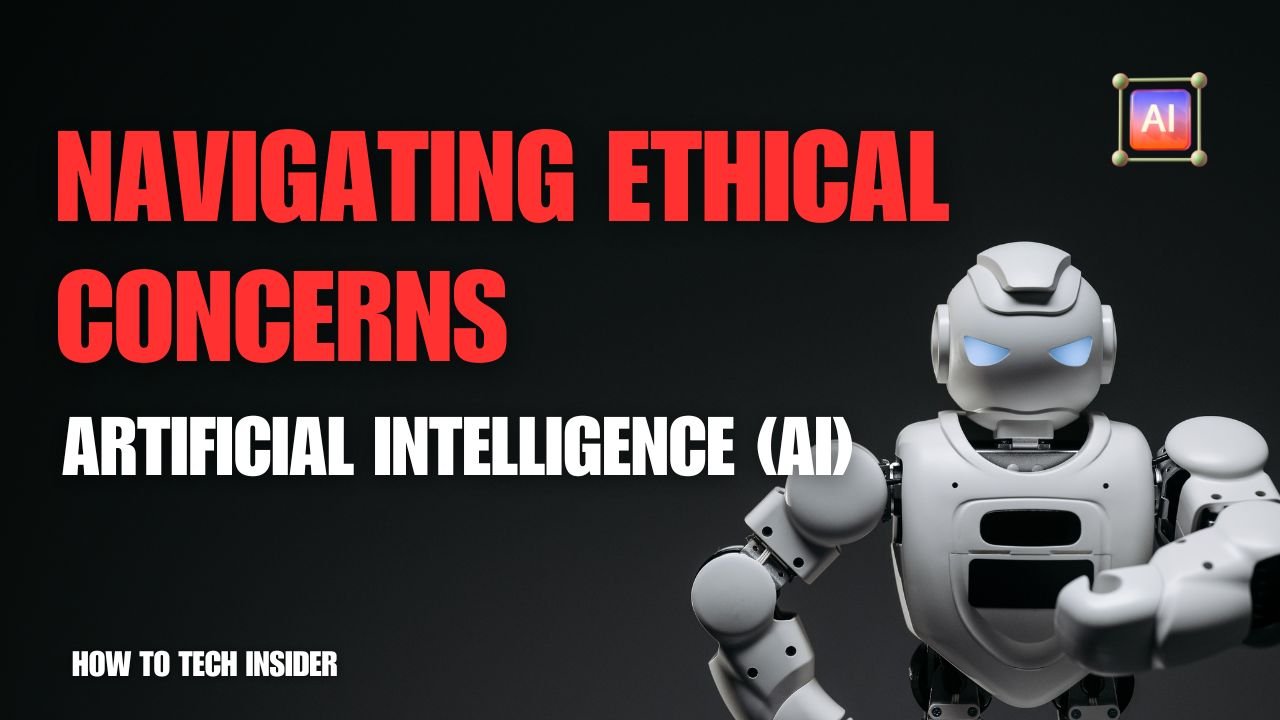In recent years, Artificial Intelligence (AI) has emerged as a transformative force across various industries, promising efficiency, innovation, and convenience. From personalized recommendations on streaming platforms to autonomous vehicles, AI-powered systems are increasingly integrated into our daily lives. However, with this rapid advancement comes a pressing need to address ethical concerns in AI deployment.
Understanding Ethical Concerns in AI
AI systems are designed to learn from data and make decisions or predictions based on that information. While this capability offers numerous benefits, it also raises ethical questions regarding fairness, accountability, privacy, and bias.
1. Fairness and Bias:
AI algorithms may inadvertently perpetuate biases present in the data used for training. For example, biased hiring algorithms can reinforce gender or racial discrimination by favoring certain demographics over others. Ensuring fairness in AI requires careful consideration of the data inputs, algorithmic transparency, and ongoing monitoring for bias.
2. Accountability:
Determining accountability in AI systems can be challenging, especially in cases where decisions have significant consequences. Who is responsible if an autonomous vehicle is involved in an accident? Establishing clear lines of accountability and liability is crucial for ensuring ethical AI deployment.
3. Privacy:
AI systems often rely on vast amounts of personal data to function effectively. Privacy concerns arise when this data is collected, stored, and analyzed without adequate consent or safeguards. Protecting user privacy while harnessing the power of AI requires robust data governance frameworks and adherence to privacy regulations.
4. Transparency and Explainability:
The opacity of AI algorithms can undermine trust and raise concerns about accountability. Users may be hesitant to rely on AI-driven decisions if they cannot understand how those decisions are made. Enhancing transparency and explainability in AI models can help mitigate these concerns and foster trust among stakeholders.
Addressing Ethical Concerns: Best Practices
To navigate the ethical complexities of AI, organizations, and policymakers can adopt the following best practices:
1. Ethical AI Frameworks:
Develop and adhere to comprehensive ethical frameworks that prioritize fairness, transparency, accountability, and privacy throughout the AI lifecycle. These frameworks should guide the design, development, deployment, and monitoring of AI systems.
2. Bias Detection and Mitigation:
Implement measures to detect and mitigate bias in AI algorithms, such as diverse dataset collection, algorithmic auditing, and fairness-aware machine learning techniques. Regularly assess AI systems for bias and take corrective actions as needed.
3. Privacy by Design:
Incorporate privacy considerations into the design of AI systems from the outset, adopting privacy-preserving techniques such as data anonymization, encryption, and differential privacy. Obtain explicit consent for data collection and processing, and limit data access to authorized personnel only.
4. Algorithmic Transparency:
Strive for transparency and explainability in AI algorithms by documenting their functionality, decision-making processes, and potential limitations. Provide users with understandable explanations of AI-driven decisions and enable recourse mechanisms in cases of errors or bias.
5. Continuous Monitoring and Evaluation:
Establish mechanisms for ongoing monitoring, evaluation, and validation of AI systems post-deployment. Regularly assess performance metrics, user feedback, and compliance with ethical guidelines, iterating on the design as necessary to address emerging concerns.
Conclusion
In conclusion, addressing ethical concerns in AI requires a multifaceted approach that encompasses technological, regulatory, and ethical considerations. By prioritizing fairness, transparency, accountability, and privacy, stakeholders can harness the potential of AI while minimizing its potential risks and maximizing its societal benefits.
Read more : Pioneering Intelligence for Personalization
Frequently Asked Questions (FAQs):
Q. How can organizations ensure fairness in AI decision-making?
Ans: Organizations can ensure fairness by carefully selecting and preprocessing training data to minimize bias, using fairness-aware algorithms, and conducting regular audits of AI systems for bias detection.
Q. What role do regulations play in addressing ethical concerns in AI?
Ans: Regulations play a crucial role in setting standards and guidelines for ethical AI deployment, addressing issues such as data privacy, algorithmic transparency, and accountability.
Q. How can individuals protect their privacy in an AI-driven world?
Ans: Individuals can protect their privacy by being mindful of the data they share online, understanding privacy policies and consent mechanisms, and advocating for strong data protection regulations.
Q. What steps can be taken to promote algorithmic transparency?
Ans: Promoting algorithmic transparency involves documenting the design and functionality of AI algorithms, providing understandable explanations of decision-making processes, and enabling independent auditing and validation.
Q. How can bias in AI algorithms be detected and mitigated?
Ans: Bias in AI algorithms can be detected and mitigated through techniques such as diverse dataset collection, algorithmic auditing, and fairness-aware machine learning methods. Regular monitoring and evaluation are essential for identifying and addressing bias over time.

